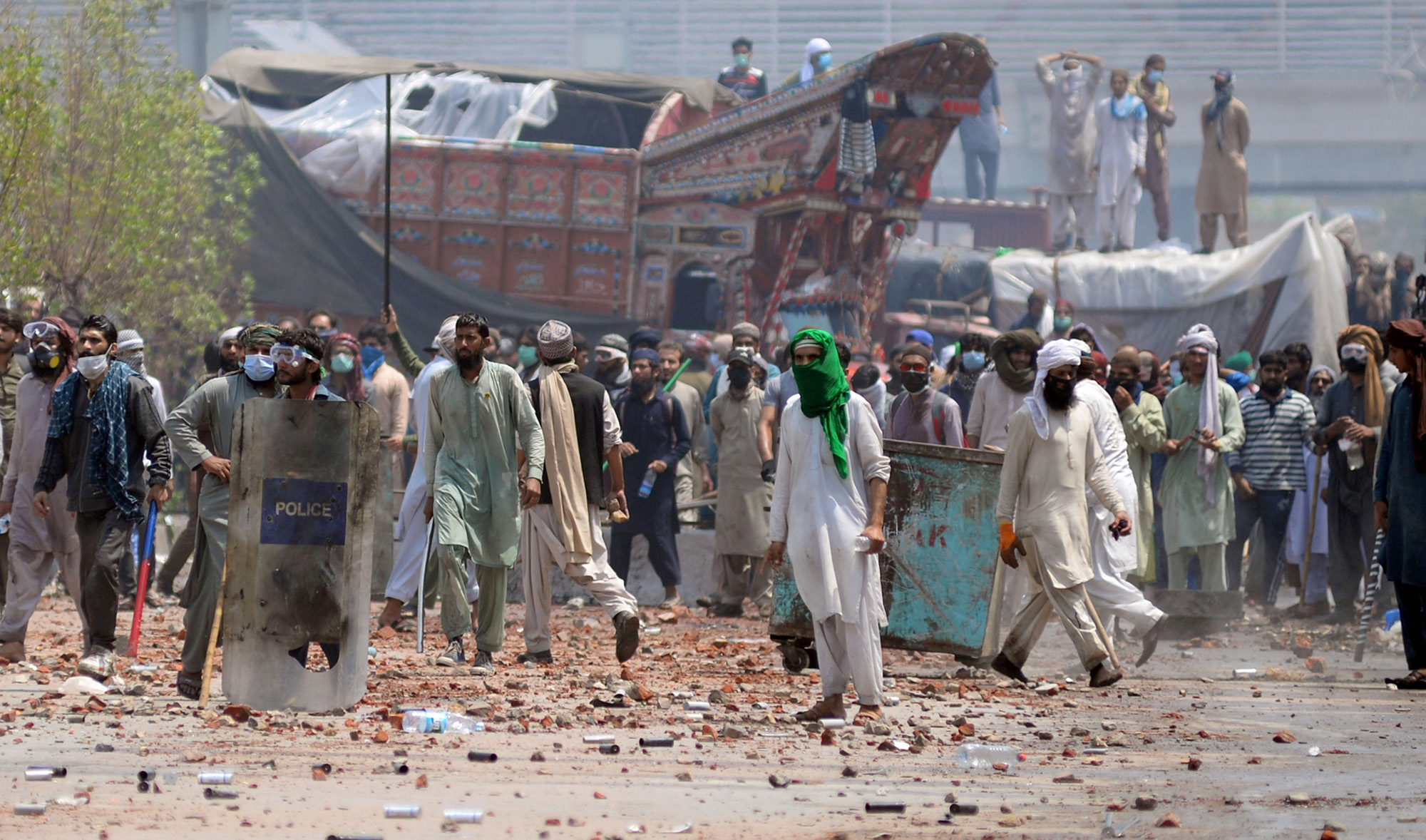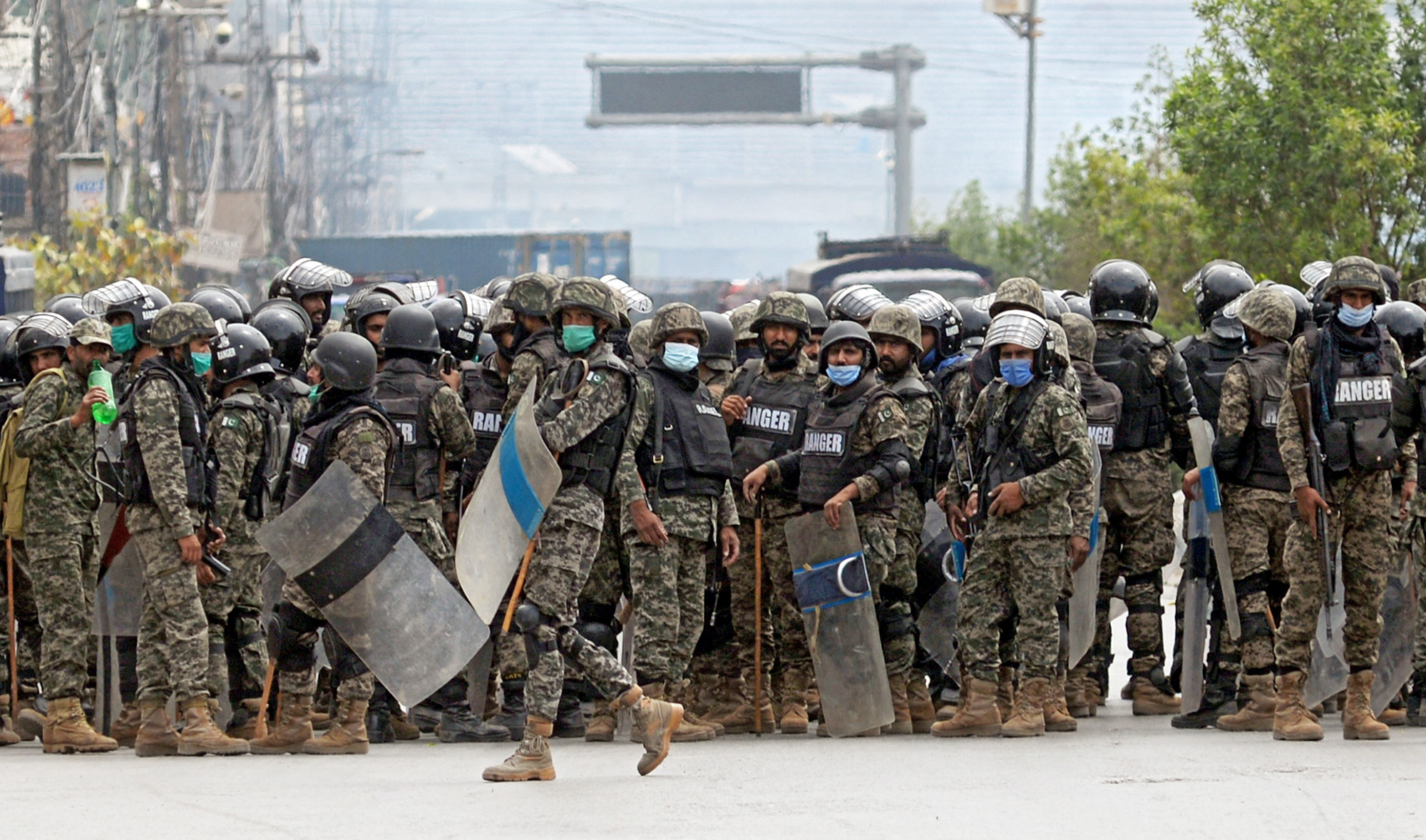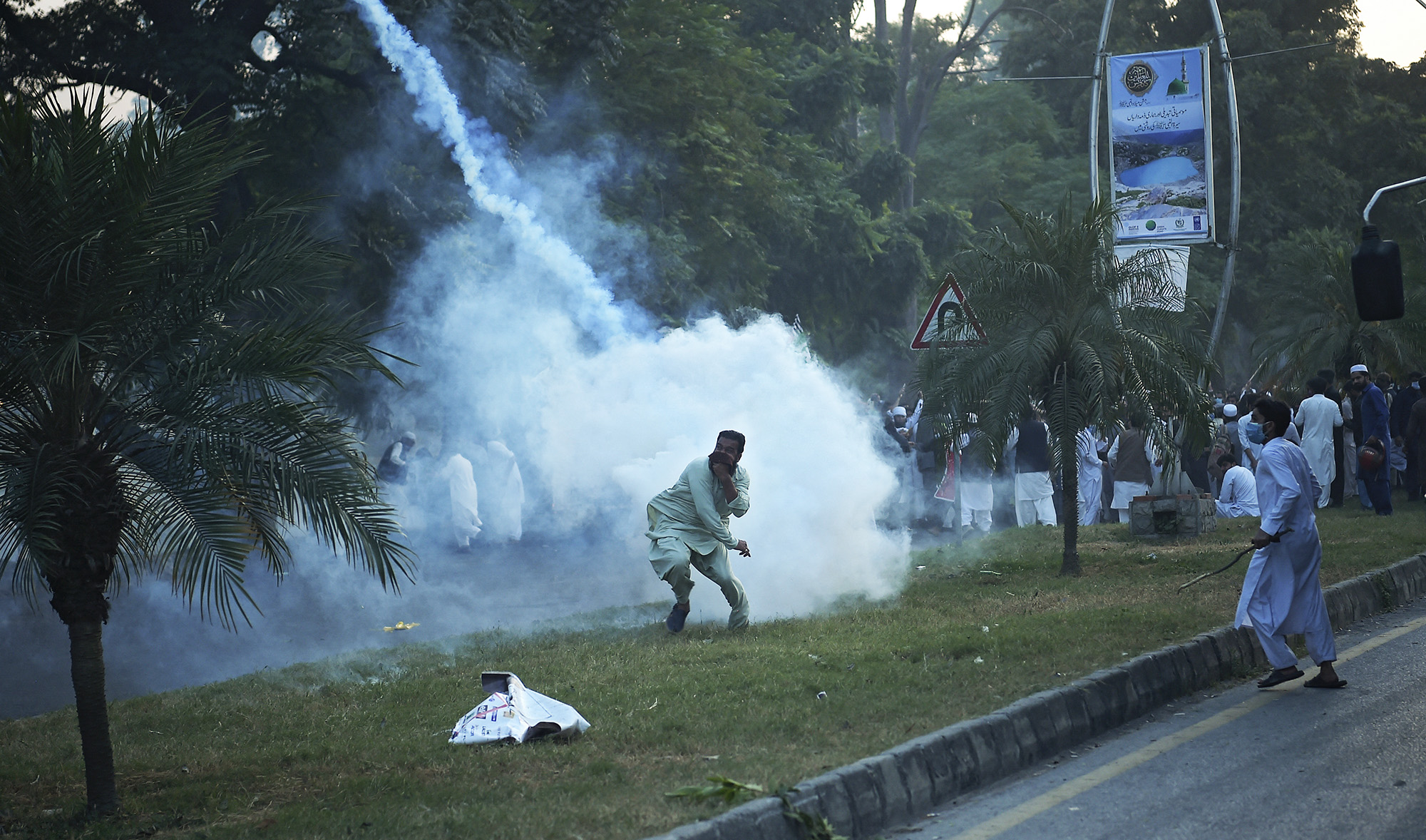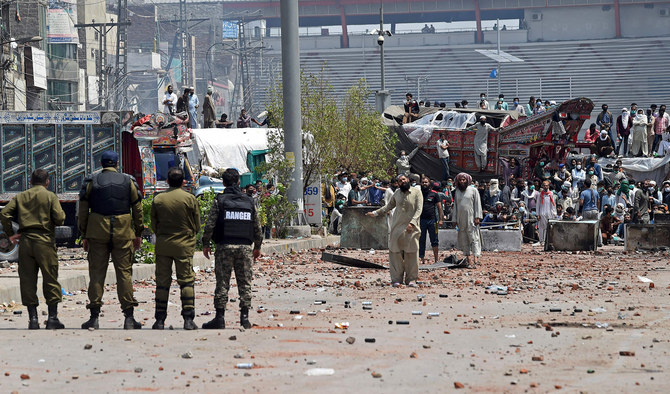LAHORE/ ISLAMABAD: Twelve security forces personnel, which includes policemen and paramilitary troops, taken hostage by the banned Tehreek-e-Labbaik Pakistan (TLP) religious party during police clashes on Sunday morning have yet to be released, Lahore Police spokesperson Arif Rana said, while the interior ministry said in a statement it would not be blackmailed by the group.
Rioting by the rightwing group has rocked the country since Monday after TLP chief Saad Rizvi was arrested in Lahore a day after he threatened the government with rallies if it did not expel the French envoy to Islamabad over cartoons of the Prophet Muhammad (PBUH) published in France last year.

Supporters of Tehrik-e-Labaik Pakistan (TLP) block a road during a protest in Lahore, Pakistan, on April 18, 2021. (REUTERS)
The protests have paralyzed major cities and highways, leading to the deaths of six policemen, according to the government, with thousands of TLP workers under arrest, police say. The riots have also prompted the French embassy to recommend all its nationals temporarily leave the country.
Following last week’s crackdown to quell the protests, there was relative calm in major cities until clashes erupted in Lahore early morning Sunday, when protesters attacked the Nawankot Police Station.
“The officers are currently being held [by the TLP] in a mosque in Lahore,” Rana said on Sunday evening. “They are still there.”
"It is the government's mandate to negotiate or not to negotiate with the protesters. We can't do it,” he said.

Paramilitary soldiers stand guard on a road during a protest by supporters of the banned political party Tehrik-e-Labaik Pakistan (TLP) in Lahore, Pakistan, on April 18, 2021. (REUTERS)
Hostages include Nawankot deputy superintendent of police, five police constables and two Rangers personnel, Rana had told Arab News earlier in the day, adding that police were trying to recover the abducted officers.
On Sunday evening Information Minister Fawad Hussain Chaudhry said in a statement the government believed in negotiating but wouldn’t be blackmailed.
“The government believes in negotiations but can't be blackmailed,” he said.
“The operation was started after police and Rangers personnel were kidnapped. The state can't be blackmailed by a proscribed armed outfit. [Prime Minister] Imran Khan has the strongest affection with the Prophet (PBUH) and he has talked about this at every forum.”
Earlier on Sunday, police spokesman Rana said the operation against the TLP had been halted as the attackers were armed with petrol bombs and a tanker with 50,000 litres of petrol. By Sunday evening, he said the situation was “at a standstill” with protesters sitting on roadsides with sticks and petrol bombs in their hands and law enforcement personnel standing guard.
“The police are handling the situation cautiously as we don't want to put the lives of our fellows [the hostages] in any danger," he said, adding that over 3,000 law enforcement personnel had been deployed in the area.
On Thursday, the interior ministry said it was moving to have the TLP party banned for attacking law enforcement forces and disrupting public life during its protests. The interior ministry’s decision has been approved by the federal cabinet but needs to be ratified by the Supreme Court for the TLP to be dissolved.
Talking to the media in Islamabad on Sunday, Interior Minister Sheikh Rashid Ahmed said no negotiations were underway with the TLP.
“We tried to negotiate for two, three months with them but in vain. They are not ready to retreat from their agenda, so the government is left with no option but to establish the writ of the state," the minister said.
Meanwhile, security has been heightened in the capital, Islamabad, the DIG operations tweeted Sunday evening.
“Security beefed up in the whole city. Heavy contingents deployed at entry/ exit points & other important installations. All possible steps would be taken for maintenance of law and order situation in the city. Stand by your police & forces,” he tweeted.
Earlier on Sunday, Lahore police told Dawn newspaper that three people had been killed in clashes with police.
In October 2020, protests broke out in several Muslim countries over France’s response to a deadly attack on a teacher who showed cartoons mocking the Prophet Muhammad to his pupils during a civics lesson.

A Pakistani protester returns a teargas shell during a demonstration in Islamabad on October 30, 2020, following French President Emmanuel Macron's comments over the Prophet Mohammed (PBUH) caricatures. (AFP/File)
During similar protests in Pakistan, the government negotiated with the TLP and met a number of its demands, including that it would debate expelling the French ambassador in parliament.
A deadline to make that parliamentary move expires on April 20.
















